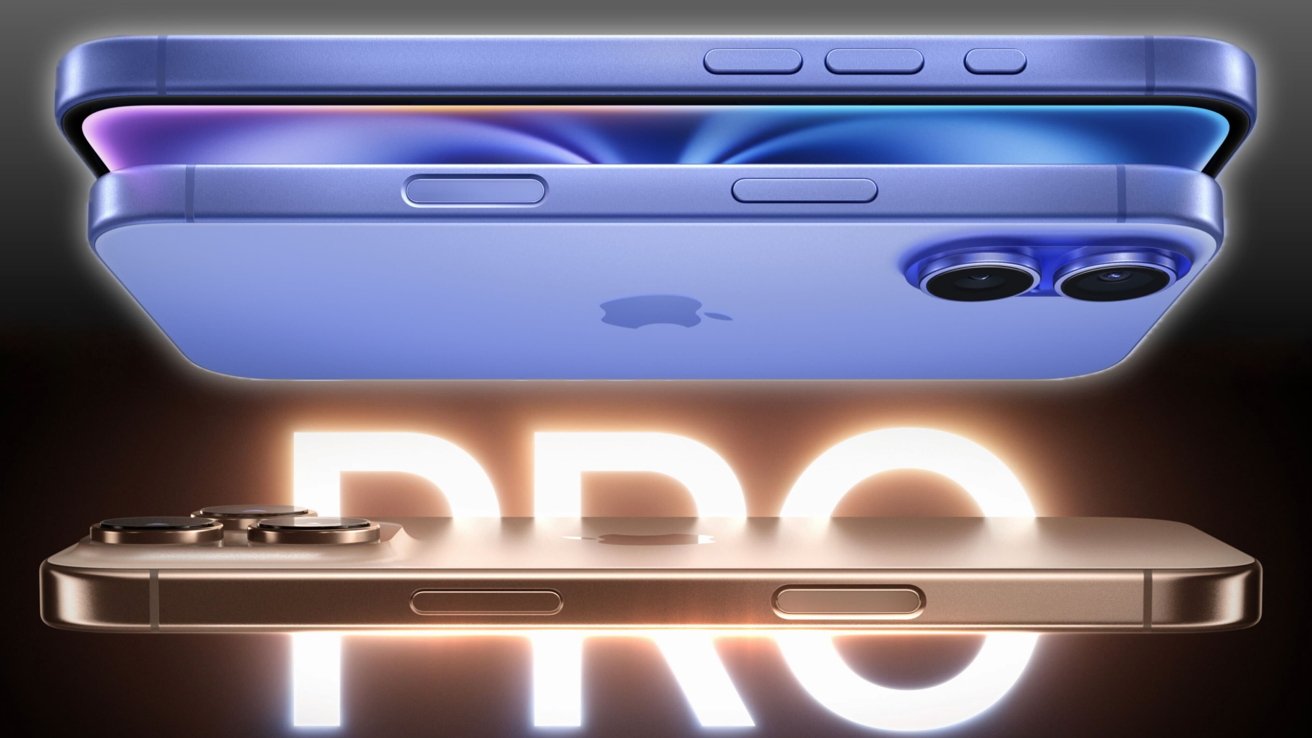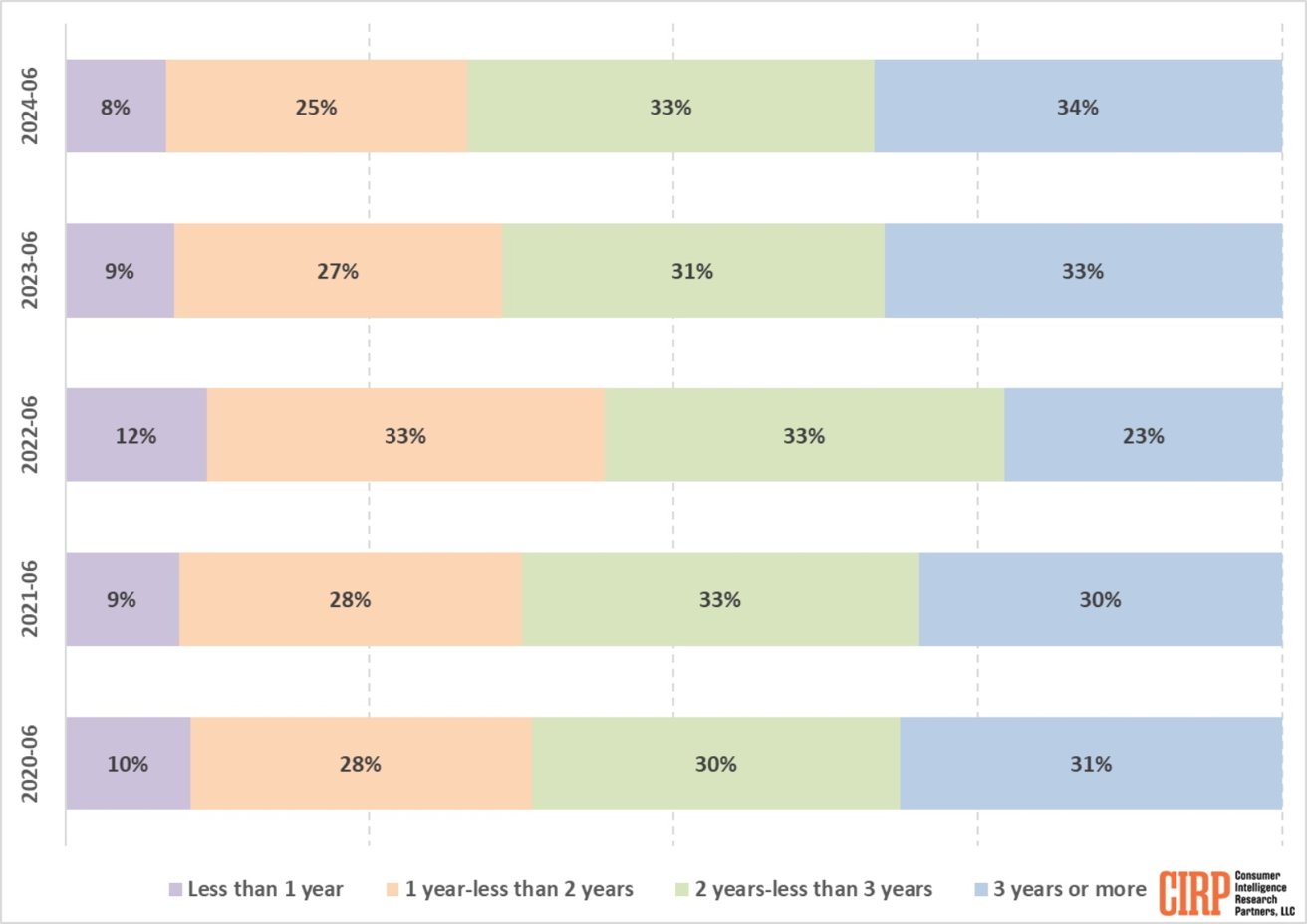Despite Apple's constant rollout of flashy new smartphones, like the new iPhone 16 models, millions of users refuse to upgrade, clinging to their older devices for longer than ever.
Apple unveils new iPhone models each year, which is always a significant event. These new releases, such as the iPhone 16 models in 2024, come packed with new features to entice customers.
However, despite the excitement of these advancements, many iPhone users are holding onto their older devices longer than ever before.
According to recent data from Consumer Intelligence Research Partners (CIRP), over one-third of new US iPhone buyers have held onto their previous phones for three years or longer. The share of iPhone buyers with phones two years old or more has risen slightly from 66% in 2023 to 70% in 2024.
The new data represents a gradual but steady increase from 64% of iPhone users in 2019 who had owned their previous phones for two years or more before upgrading.
A comparison of 2019 and 2024 iPhone upgrade data highlights changes in user behavior. In 2019, 38% of users upgraded within 2-3 years, and 26% kept their phones for three years or more.
By 2024, the percentage holding onto phones for three years or more grew to 34%, while those upgrading within 1-2 years dropped from 28% to 25%.
Features versus practicality
Whether it's advanced camera systems, faster processors, or exciting software capabilities, these features are supposed to entice users to upgrade. Yet, these features alone aren't enough to drive the majority of consumers to buy the latest iPhone models.
As iPhones have become more reliable, consumers feel pressured to replace them less frequently.
Installment plans
Another aspect of slower upgrades relates to the financial structure surrounding iPhone purchases. Most iPhone users acquire their devices through installment plans, spreading payments over several months or even years.
"In addition, reliance on installment payments for new phone purchases makes keeping a paid-off phone a welcome reprieve, CIRP explains. "Depending on purchase incentives, installment contract length, model, and configuration, after their final payment many iPhone owners enjoy a decrease of $40 or more in their monthly cell phone expense."
It's clear that Apple may need to rethink its strategies to encourage upgrades. Maybe the rise of Apple Intelligence in the iPhone 15 and iPhone 16 lineups will entice customers to upgrade.
 Andrew Orr
Andrew Orr








-m.jpg)






 Wesley Hilliard
Wesley Hilliard

 Oliver Haslam
Oliver Haslam
 Christine McKee
Christine McKee
 Amber Neely
Amber Neely


 Sponsored Content
Sponsored Content






36 Comments
This is the natural evolution of all new technology. Same happened with personal computers. When they first come out they are terrible. Then experience and a larger base of consumers allows many refinements in the design. Eventually they just work for 90% of uses. So a company just incrementally improves while hoping to eventually create some brand new product category to get folks excited again.
In today's environment, if you can get years of service out of an expensive device, of course you would. I'm still using an iPhone 11 Pro Max that I bought new in October of 2019. The original battery still has more than 80 per cent of its original capacity. It's quite capable. It still qualifies for the latest software. Great investment, really, which is not such a bad thing for Apple because I'm thrilled with my purchase. I'll gladly buy another iPhone probably next year. If I had instead spent more than $1,000 on the iPhone 11 and needed to replace sooner, I would have thought twice about sticking with Apple. Apparently there are many iPhone 11 owners out there and I'm betting many of them, like me, are going to be eying a new phone in the next year or two. A good thing for Apple and a good thing for Apple customers all around, from my perspective.
I don’t think Apple’s strategy is to get most users to upgrade every year. That puts a tremendous impact on the environment and I don’t think Apple is setup for that much manufacturing. Apple is setup to gain from people sticking around, buying services and when they are ready to upgrade, upgrade. The phones are built to last a bit, so why is it bad to Apple of users that people keep their phones for longer?
iPhone 13 Pro user here. Still working fine speed-wise, and thankfully not that dinged up so in pretty good shape. After the iPhone 16 announcement I went to the Apple Store and got my battery replaced for about $95 after tax. Phone has great battery life again now, and that $100 bought me probably another 2 years of use as long as I don't break the thing.